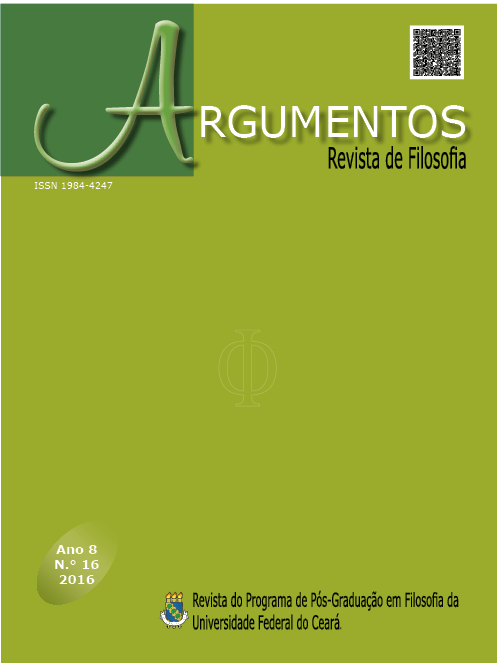A relação binominal virtù-fortuna no pensamento ético e político de Maquiavel
Palavras-chave:
Maquiavel. Fortuna. Virtù. Príncipe. Estado.Resumo
O presente estudo representa um esforço no sentido de aprofundar e evidenciar a relação binomial virtù-fortuna e o papel fundamental que ela representa no pensamento de Maquiavel acerca da ordenação da sociedade através da ação do príncipe. De um lado a fortuna, imediatamente ligada à providência divina e à mitologia pagã, não representando simplesmente o acaso ou a mera sorte, por outro lado, a virtù, o conjunto de capacidades do príncipe, os meios e a excelência que o fazem atuar devidamente em todas as ocasiões. A relação entre fortuna e virtù não se pode encarar como artificial ou simples resultado arbitrário da mudança dos tempos. Ao introduzir uma conceção cíclica da História, Maquiavel evidencia a importância capital dos eventos na prossecução de certos fins, pelo que, necessariamente, de todas as decisões resultam causas necessárias, desejadas ou não. Cabe ao príncipe engrandecer-se em virtù para compreender como agir no novo ciclo, no seu tempo concreto, considerando escrupulosamente os exemplos do passado, evitando os erros cometidos por outros, superando em excelência os antigos.
Downloads
Downloads
Publicado
Como Citar
Edição
Seção
Licença
Autores que publicam nesta revista concordam com os seguintes termos (SOBRE COPYRIGHT E POLÍTICA DE ACESSO LIVRE):
1. Autores mantém OS DIREITOS AUTORAIS concedidos à revista OU Direito de Primeira Publicação, com o trabalho simultaneamente licenciado à Atribuição de Licença Creative Commons (CC BY) que permite o compartilhamento dos trabalhos com reconhecimento de autoria e publicação inicial nesta revista.
2. Autores têm permissão para aceitar contratos, distribuição não-exclusiva da versão do trabalho publicada nesta revista (por exemplo: publicar no repositório institucional ou como um capítulo do livro), com reconhecimento de autoria e publicação inicial nesta revista.
3. Autores têm permissão e são estimulados a publicar e distribuir seu trabalho on-line (por exemplo: em repositórios institucionais ou em sua página pessoal) mesmo durante o processo editorial, haja visto que isso pode aumentar o impacto e citação do trabalho publicado.




.jpg)










._._3.png)
1.jpg)
._._._.png)
